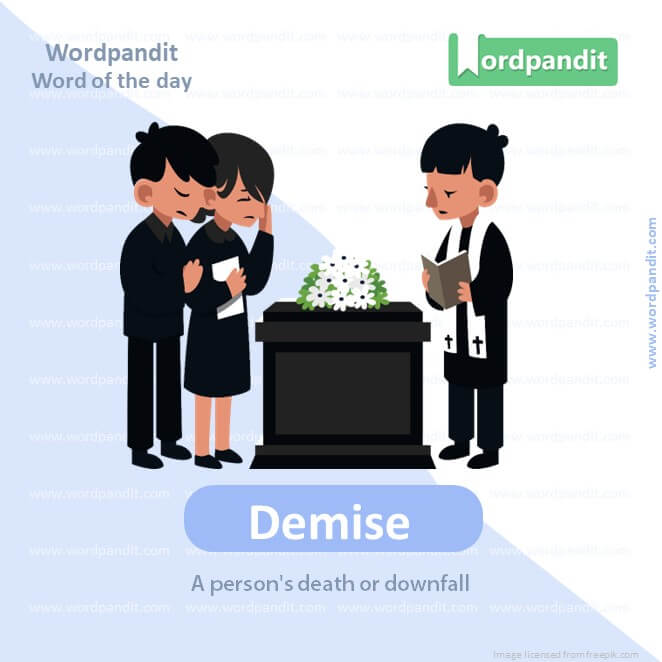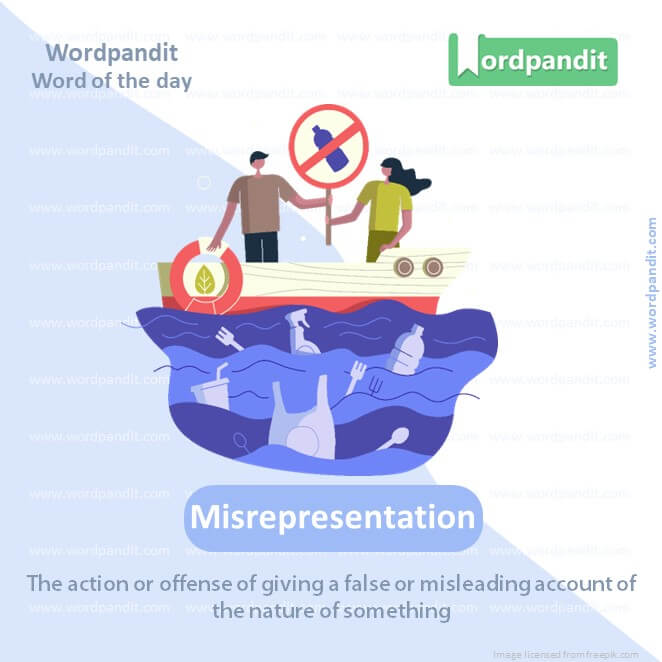Daily Vocabulary Words: List of Daily Used Words in Leading Indian Newspapers
Hi there. Welcome to this special section @ Wordpandit. Our endeavour here is straightforward: highlighting daily vocabulary words that you would come across in leading newspapers in the country. We have included the following newspapers in our selection:
• The Times of India
• The Economic Times
• Hindustan Times
• Mint
• Indian Express
We are putting in extensive work to develop your vocabulary. All you have to do is be regular with this section and check out this post daily. This is your repository of commonly used words; essentially, we are posting a list of daily used words. Hence, this has significant practical application as it teaches you words that are commonly used in leading publications mentioned above.
Visit the website daily to learn words from leading Indian newspapers.

WORD-1: Attainment-oriented
CONTEXT: With the increasing focus on digital education, students have become more attainment-oriented, setting clear goals for their academic careers. The Times of India
SOURCE: The Times of India
EXPLANATORY PARAGRAPH: Imagine you really, really want a big ice cream cone. So, you do everything you can to get that ice cream. Being “attainment-oriented” is like that. It means you’re super focused on getting something you want.
MEANING: Focused on achieving specific goals or benchmarks (adjective).
PRONUNCIATION: attainment oriented
SYNONYMS: goal-driven, achievement-focused, ambitious, purposeful, target-oriented, success-minded, results-focused.
USAGE EXAMPLES:
1. Lisa is so attainment-oriented; she always gets the best grades.
2. Being attainment-oriented helps athletes win medals.
3. John’s attainment-oriented approach helped him start his own business.
4. The team was attainment-oriented and aimed for the championship.

WORD-2: Deceptive
CONTEXT: Reports surfaced about deceptive marketing strategies being used by some e-commerce giants, prompting a call for stricter regulations. The Economic Times
SOURCE: The Economic Times
EXPLANATORY PARAGRAPH: Imagine a toy that looks really fun on the box, but when you open it, it’s not that fun. That toy is “deceptive” because it tricks you into thinking it’s better than it is.
MEANING: Giving an appearance or impression different from the true one (adjective).
PRONUNCIATION: deh-sep-tiv
SYNONYMS: misleading, false, dishonest, deceitful, tricky, illusory, treacherous.
USAGE EXAMPLES:
1. The advertisement was deceptive and made the toy look more fun than it was.
2. He had a deceptive smile, hiding his true feelings.
3. The magician’s tricks were deceptive and amazed the audience.
4. Always read labels; they can sometimes be deceptive.

WORD-3: Demise
CONTEXT: The untimely demise of the acclaimed author sent shockwaves through the literary world, leaving many to mourn the loss of a genius. Hindustan Times
SOURCE: Hindustan Times
EXPLANATORY PARAGRAPH: “Demise” is a fancy word that means something or someone has ended or is no more. Like when your favorite toy breaks, you can say it met its demise.
MEANING: A person’s death or downfall (noun).
PRONUNCIATION: deh-mize
SYNONYMS: end, death, downfall, termination, conclusion, expiration, finish.
USAGE EXAMPLES:
1. The king’s demise was mourned by the entire kingdom.
2. The demise of the old building made way for a new park.
3. After the demise of the old tree, birds had to find a new home.
4. The company faced its demise after a series of bad decisions.

WORD-4: Exile
CONTEXT: Following allegations of financial improprieties, the once-revered businessman was forced into exile, marking a dramatic fall from grace. Mint
SOURCE: Mint
EXPLANATORY PARAGRAPH: “Exile” is when someone has to leave their home and go live somewhere else because they are not allowed to stay. Like when you’re told to go to your room as a timeout.
MEANING: The state of being barred from one’s native country (noun).
PRONUNCIATION: exile
SYNONYMS: banishment, expulsion, eviction, ousting, deportation, removal, displacement.
USAGE EXAMPLES:
1. The king sent the traitor into exile.
2. After the war, many people lived in exile in neighboring countries.
3. The writer chose to live in exile rather than face the government’s anger.
4. His controversial ideas led to his exile from the academic community.

WORD-5: Misrepresentation
CONTEXT: Critics argue that the recent advertisement campaign is nothing more than a misrepresentation of the product’s actual capabilities. Indian Express
SOURCE: Indian Express
EXPLANATORY PARAGRAPH: “Misrepresentation” is like telling a story about a small fish you caught, but saying it was a big shark. It’s when something is described in a wrong or false way.
MEANING: The action or offense of giving a false or misleading account of the nature of something (noun).
PRONUNCIATION: miss-rep-re-zent-ay-shun
SYNONYMS: distortion, falsehood, deception, misstatement, falsification, lie, exaggeration.
USAGE EXAMPLES:
1. The company was sued for the misrepresentation of its products.
2. He apologized for the misrepresentation of facts in his article.
3. The actor felt there was a misrepresentation of his words in the magazine.
4. She was accused of misrepresentation in her sales pitch.
WORD-6: Diabolic
CONTEXT: The plot of the new thriller revolves around a diabolic mastermind who manipulates people for his own gains. The Times of India
SOURCE: The Times of India
EXPLANATORY PARAGRAPH: Think of the bad guys in fairy tales who do really, really naughty things. When something is “diabolic”, it’s like that very wicked or evil.
MEANING: Extremely wicked or evil (adjective).
PRONUNCIATION: die-a-bol-ik
SYNONYMS: devilish, demonic, evil, fiendish, hellish, infernal, satanic.
USAGE EXAMPLES:
1. The villain in the movie had a diabolic plan to take over the world.
2. His laughter had a diabolic tone, making everyone shiver.
3. The old legend spoke of a diabolic creature in the forest.
4. Some described the crime scene as something out of a diabolic nightmare.
WORD-7: Trample
CONTEXT: Environmentalists are raising concerns over the rapid urbanization that seems to trample on the rights and habitats of indigenous tribes. Hindustan Times
SOURCE: Hindustan Times
EXPLANATORY PARAGRAPH: Imagine you have built a beautiful sandcastle, and someone comes and steps all over it, smashing it. That’s what “trample” means to step on and crush something.
MEANING: To step on heavily and crush or damage (verb).
PRONUNCIATION: tramp-ul
SYNONYMS: crush, stamp, squash, flatten, tread, stomp, press.
USAGE EXAMPLES:
1. The crowd was so excited that they trampled the flowers in the park.
2. Elephants can trample and damage crops in villages.
3. During the sale, the toys were trampled underfoot by eager shoppers.
4. He asked the kids not to trample on the freshly planted grass.
WORD-8: Scrambling
CONTEXT: Amidst rumors of an impending stock market crash, investors are scrambling to secure their investments and minimize losses. The Economic Times
SOURCE: The Economic Times
EXPLANATORY PARAGRAPH: Have you ever tried to quickly climb a tree or a big rock? When you’re moving fast, using your hands and feet to climb, that’s called “scrambling”.
MEANING: Climbing or moving quickly, especially over rough terrain, using both hands and feet (verb).
PRONUNCIATION: scrambling
SYNONYMS: clambering, crawling, scurrying, hustling, rushing, hurrying.
USAGE EXAMPLES:
1. The kids were scrambling up the hill to get the best view.
2. We spent the morning scrambling over rocks at the beach.
3. The cat was scrambling up the tree to escape the dog.
4. Tourists were scrambling to take photos of the rare bird.
WORD-9: Exemplified
CONTEXT: The philanthropic work of the NGO exemplified the true spirit of community service, winning them nationwide admiration. Mint
SOURCE: Mint
EXPLANATORY PARAGRAPH: Think of your favorite superhero who always does good things. They “show” everyone how to be brave and kind. When someone or something “exemplifies” something, it means they are a perfect example of it.
MEANING: To show or illustrate by being a typical example (verb).
PRONUNCIATION: exemplified
SYNONYMS: illustrate, demonstrate, show, represent, epitomize, embody, typify.
USAGE EXAMPLES:
1. Her dedication to the environment exemplified the spirit of the movement.
2. The ancient monument exemplified the architectural genius of its time.
3. The teacher’s methods exemplified best practices in modern education.
4. The athlete’s performance exemplified determination and hard work.
WORD-10: Dominance
CONTEXT: The latest tech conference showcased the dominance of AI-driven applications in the current market scenario. Indian Express
SOURCE: Indian Express
EXPLANATORY PARAGRAPH: Imagine a lion in the jungle. All the other animals know he’s the boss because he’s strong and powerful. That big strong feeling the lion has is called “dominance”. It means someone or something is in control or is the most important.
MEANING: Power and influence over others (noun).
PRONUNCIATION: dominance
SYNONYMS: supremacy, authority, control, command, superiority, influence.
USAGE EXAMPLES:
1. The company’s dominance in the market was clear to its competitors.
2. The coach stressed the importance of establishing dominance early in the game.
3. Her dominance in the debate was evident from her confident answers.
4. The empire’s dominance spread across three continents at its peak.
Vocabulary Today
In the dynamically evolving spectrum of language, staying updated with ‘vocabulary today’ is an integral part of mastering a language. These topical, contemporary words breathe vitality into our communication, bridging the gap between language learning and language living. But, how can we effectively learn ‘vocabulary today’?
Grasping ‘vocabulary today’ begins with exposure to contemporary contents. Engaging with current publications, social media platforms, movies, music, podcasts, and digital content can dive you into the real-world usage of ‘vocabulary today’. These platforms imbibe the vocabulary of the day, reflecting the evolution in language.
To consolidate the learning of ‘vocabulary today’, utilize memory-enhancing tools. Flashcards, language learning apps, or memory-enhancement software can make your study session an engaging venture and enhance word retention.
However, the secret sauce to learning ‘vocabulary today’ is practice. Inculcating these words in your regular dialogues, written correspondences, or social media posts will reinforce your grasp over these words. It brings you closer to ‘vocabulary today’, enhancing your language adaptability and fluency.
Better understanding of ‘vocabulary today’ can be achieved by staying connected with diverse social platforms which bring words from across locations and cultures, expanding your linguistic understanding. Also, participating in language forums, discussion groups, or language exchange platforms provides great insights into ‘vocabulary today’.
In the final analysis, staying abreast with ‘vocabulary today’ is an exciting quest that requires consistent exposure, active practice, and social engagement. As you embrace this journey, you will find your language proficiency growing with every new word, enabling you to step into the dynamic world of contemporary language with confidence and mastery. Remember, ‘vocabulary today’ is not static, it flows like a river, always fresh, always changing, and always enriching!









